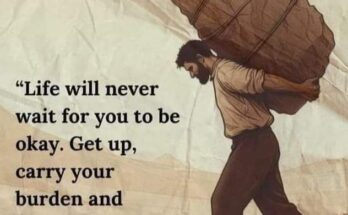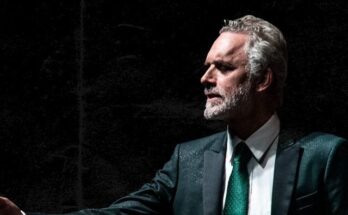Dr. Jordan B. Peterson, a clinical psychologist and professor of psychology, has garnered international recognition for his outspoken views on culture, politics, psychology, and responsibility. His books Maps of Meaning and 12 Rules for Life have resonated with millions, especially young men searching for direction in a disoriented world. Yet, despite his popularity, Peterson remains a polarizing figure. To some, he is a beacon of intellectual clarity and personal discipline; to others, he is a reactionary thinker resisting the progressive transformations of society. This essay proposes a possible change in Jordan Peterson’s approach that could be both interesting and transformative: a conscious shift toward constructive engagement with progressive movements and more nuanced conversations about systemic change.
Rather than abandoning his core beliefs or caving to ideological demands, such a change would involve Peterson actively engaging with diverse intellectual circles—particularly those advocating for equity, climate action, and structural reform—without compromising his commitment to individual responsibility. This shift could open new dialogues, reduce polarization, and redefine his role as a cultural critic and public intellectual.
The Current Persona: Strengths and Limits
Peterson’s rise to fame was accelerated by his vocal opposition to Canada’s Bill C-16, which mandated the use of gender-neutral pronouns. He saw the bill as a threat to free speech and a slippery slope toward compelled language. His firm stance earned him a devoted following but also entrenched opposition. His videos, lectures, and debates soon evolved beyond pronouns, touching on everything from Marxism to masculinity, postmodernism, religion, and the structure of meaning itself.
One of Peterson’s greatest strengths is his ability to make psychological and philosophical concepts accessible. He encourages people to “clean their rooms” both literally and metaphorically, emphasizing the importance of personal responsibility before attempting to change the world. He interprets biblical stories as archetypal myths offering timeless guidance and draws from Jungian psychology, Nietzsche, and Dostoevsky to construct a moral vision rooted in order, hierarchy, and the hero’s journey.
However, his framework has limitations. By focusing so heavily on individual transformation, Peterson sometimes underplays the importance of collective and systemic issues—economic inequality, racial injustice, environmental degradation, and healthcare disparities. His critiques of feminism and social justice movements, though often grounded in intellectual arguments, can come off as dismissive or antagonistic. This tone reinforces ideological divides and limits his reach among more progressive or marginalized audiences.
The Possible Change: Engaging With the “Other Side”
A meaningful and interesting shift in Peterson’s philosophy could come from sincere engagement with progressive intellectuals and causes. This doesn’t mean becoming a progressive or abandoning his views. Rather, it means recognizing that personal responsibility and systemic reform are not mutually exclusive.
What would it look like for Peterson to join a climate roundtable, not to argue against it, but to discuss how individual responsibility intersects with planetary stewardship? What if he entered dialogue with racial justice advocates not to dismiss claims of systemic bias but to explore how self-improvement and structural change can work hand in hand?
This doesn’t require Peterson to dilute his critique of ideologies he finds dangerous. Instead, it’s about tempering ideological rigidity with openness and intellectual humility. Peterson has the rhetorical skill and depth of knowledge to engage critically without being combative. By doing so, he could move from being a countercultural provocateur to a bridge-builder in an age of division.
Bridging Individualism and Structural Change
Peterson often emphasizes that meaning is found through voluntary responsibility. This insight resonates deeply in a time when many feel aimless and overwhelmed by a world seemingly beyond their control. However, the idea that individuals are solely responsible for their circumstances can overlook real and measurable structural barriers. Racial discrimination, class inequity, gender-based violence, and ecological collapse are not mere illusions of personal failure.
A possible evolution in Peterson’s message would involve acknowledging these realities more directly. He could explore how structures and systems shape individuals while still affirming the power of agency. By integrating social and economic contexts into his psychological framework, Peterson would offer a more comprehensive understanding of the human condition.
Imagine, for instance, a new lecture series or book from Peterson titled Rules for a Complex World, where he explores how individual ethics, societal design, and policy choices all converge. He could interview public health experts, environmental scientists, or social workers—people working at the intersection of personal and structural change. Such a move would not betray his principles but expand them.
Engaging Feminism Without Dismissal
Another area ripe for growth lies in Peterson’s treatment of feminism. While he has criticized radical or ideological strands of the movement, his dismissive tone often alienates listeners who identify as feminists or support gender equality. He often frames gender issues as a power struggle narrative driven by Marxist ideology, overlooking the diversity of thought within feminism.
A more fruitful approach would involve engaging with feminist thinkers on their own terms. Peterson could acknowledge legitimate feminist concerns—such as workplace discrimination, reproductive rights, and gender-based violence—without endorsing every aspect of the movement. He could invite dialogue with scholars who approach gender through psychology, sociology, and history, creating a space for mutual learning.
By doing so, Peterson could demonstrate that one can critique aspects of feminism while still being committed to gender justice. This would enrich his credibility and broaden his influence among audiences previously alienated by his tone and framing.
Reframing Masculinity in a Positive Light
Peterson’s most impactful contribution may lie in his discussion of masculinity. He speaks directly to young men, affirming their value and encouraging them to embrace responsibility, purpose, and self-respect. In a culture that often struggles with how to talk about men without resorting to caricatures, Peterson fills a deep need.
Yet, his framing of masculinity often places it in opposition to progressive movements. A more nuanced perspective could recognize that masculinity is not under siege from feminism but is evolving in response to changing cultural expectations. A deeper engagement with positive masculinity—compassionate fatherhood, emotional resilience, collaborative leadership—could enrich Peterson’s message.
This change would also allow Peterson to address the crisis among young men in a more holistic way. He could explore how economic dislocation, digital addiction, and social isolation affect male identity. By contextualizing personal responsibility within societal changes, Peterson could deepen his impact without abandoning his core message.
Engaging the Climate Crisis as a Moral Imperative
Peterson has expressed skepticism toward certain elements of the climate change discourse, viewing it as prone to ideological overreach and alarmism. However, dismissing the climate crisis as a moral or existential issue is increasingly untenable. The world’s leading scientists, including psychologists studying climate anxiety, recognize the psychological toll of environmental degradation.
A constructive shift for Peterson would be to approach climate change not as a battleground of ideologies, but as a challenge to individual and collective morality. He could ask: what does it mean to act responsibly in a world facing ecological limits? How can one live a meaningful life without contributing to long-term harm?
Such questions align with his existential concerns and his focus on meaning. He could explore how stewardship of the Earth fits into ancient moral frameworks and religious stories. Rather than merely critiquing climate rhetoric, he could help develop a psychologically grounded climate ethic—one that starts with individual change but connects to broader ecological responsibility.
The Power of Listening
Peterson is often praised for his eloquence and clarity, but another powerful form of communication is listening. One of the most interesting shifts he could make would be to step back and allow others—particularly those from marginalized communities—to speak, not to debate them, but to learn from their stories.
Imagine Peterson hosting a podcast series titled Perspectives, where he listens to a single mother navigating poverty, an Indigenous activist fighting for land rights, or a transgender person sharing their experience of alienation and identity. These stories could challenge his framework, or they might reinforce it in unexpected ways. But the act of listening alone would humanize both him and his critics.
Such a move would demonstrate intellectual humility and emotional courage—the very qualities he encourages in others. It would also help bridge the empathy gap that often fuels cultural division.
The Cost and Reward of Change
Of course, a shift of this nature would come at a cost. Peterson may lose some followers who value him primarily as a cultural warrior or anti-woke champion. He may be criticized for “going soft” or betraying his roots. But the potential rewards are greater.
He could reach broader audiences, build unexpected alliances, and contribute meaningfully to healing cultural divides. By modeling a balance between conviction and curiosity, he could inspire others to do the same. In a world craving principled leaders who are open to change, Peterson could become a rare voice of nuance in a noisy era.
Conclusion
Jordan Peterson is a figure who commands both admiration and criticism, often in equal measure. His unwavering commitment to individual responsibility, meaning, and truth has inspired millions. Yet, a possible and compelling change—an openness to deeper engagement with progressive ideas and systemic issues—could amplify his influence and deepen his relevance.
Such a transformation would not require abandoning his beliefs, but rather expanding them. It would mean embracing complexity over certainty, dialogue over dogma, and integration over polarization. The world does not need Peterson to become someone else; it needs him to be the best version of himself—curious, courageous, and capable of growth.
A Jordan Peterson who listens more, engages wider, and builds bridges without losing his spine could become not just a cultural critic, but a cultural healer. That change, though difficult, would be truly interesting—and possibly, deeply necessary.

